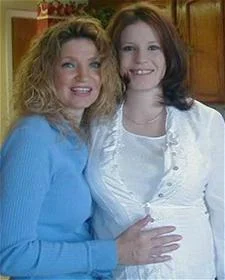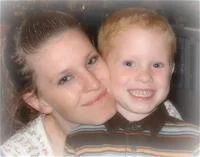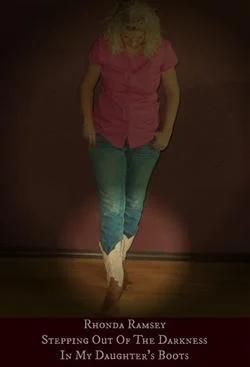
September 4, 2015
September is Suicide Prevention Month, and when it comes to suicide prevention, every day matters. A person dies by suicide about every 12.8 minutes in the United States. Every day, approximately 112 Americans take their own life, and every year in Shasta County, about 40 people die by suicide. For every one of those deaths, there are hundreds of local people – family members, spouses, loved ones, colleagues and friends – who are left to suffer an unnatural grief and to pick up the pieces. I am one of them. I am one of Shasta County’s suicide loss survivors.

My name is Rhonda Ramsey, and on December 28, 2008, I received a telephone call that no parent ever wants to receive. After two previous suicide attempts, and many years of battling bipolar disorder, my daughter Melissa lost her fight with the illness. Even though I knew bipolar disorder caused my daughter to have dramatic mood swings, and at times interfered with her ability to make good choices, nothing could have ever prepared me for losing my child to suicide.
Most people have little idea of how to react when someone loses a child to suicide, but I was fortunate to have a sister-in-law who is a neurologist, and I was living in a close-knit neighborhood where many of my neighbors were doctors. My family and neighbors offered empathy and support, and they encouraged me to meet with my therapist to get advice on how to tell my 5-year-old grandson that his mom died.
The conversation with my grandson was very painful, and I followed the therapist’s advice. My grandson asked very detailed questions while he sobbed uncontrollably. I kept repeating the words that her death was an accident, and she loved him very much. Sadly, at 5 years old, he knew that his mom had killed herself because he’d heard her say the words “I want to die” or “I’m going to kill myself” many times before.
My grandson and I both suffer from Post-Traumatic Stress Disorder (PTSD), and it is very difficult to stay focused most days. The first year following my daughter’s death, each morning that I dropped my grandson off at school, he’d hug me real tight, cry, and make me promise not to die. It is never easy losing a loved one, but losing a loved one to suicide is a unique kind of pain.
I don’t blame myself or anyone else for my daughter’s death. I know that if I had the power to control or change anything, my daughter would be healthy and alive today. My grandson wasn’t old enough to understand that his mom was fighting a battle with mental illness, and he blamed himself.
Selfish is not a word that I would use to describe my daughter in life, or in death. People living with bipolar disorder cannot control their moods, and they can’t just snap out of depression. Neither depression nor mania can be overcome through self-control, willpower or reasoning. Stigma certainly does not help families, or individuals living with the illness.

Stigma is still a major hurdle in getting people the mental health care they need. According to the latest statistics from the National Institute of Mental Health, 40 to 50 percent of all people with bipolar disorder or schizophrenia go untreated each year. The number of untreated people suffering from other disorders, such as anxiety or depression, is even greater.
There are no words to describe the day-to-day pain that my family has had to endure over the past six years, but we’ve managed to gain understanding, strength and healing by talking openly about mental illness and suicide with others. My grandson is now 12 years old and with a lot of hard work, education and therapy, he understands that he is not to blame for his mom’s death.
I proudly display pictures of my daughter in our home, I share memories and I encourage others to share memories of my daughter with my grandson. I’ve had people delete me from social media and tell me that it was because I talk openly about suicide, but I’ve taught my grandson by my example to stand against the stigma. I am not ashamed that my daughter suffered from mental illness, and I don’t allow others to control my grieving process.
I am asking people to join us in talking openly about mental health and suicide prevention, because it is everybody’s business. For youth between the ages of 10 and 24, suicide is the third leading cause of death. My grandson is at high risk for suicide based on statistics, and all children face many challenges, including bullying, bereavement, domestic violence, anxiety, depression, addiction and self-harm. Shameful secrets and the stigma surrounding mental health keeps many adults and children from getting the help they so badly need. Asking for help is not a sign of weakness.
Rhonda Ramsey on Preventing Suicide – Stepping out of the Darkness in My Daughter’s Boots
Stand against the stigma! There is strength in numbers, so join with others during National Suicide Prevention Week in Shasta County at the Out of the Darkness Walk from 8 a.m. to noon Saturday, Sept. 12, at Caldwell Park. The walk is sponsored by the American Foundation of Suicide Prevention (AFSP) , the leading national nonprofit organization exclusively dedicated to understanding and preventing suicide through research, education and advocacy, and to reaching out to people with mental disorders and those impacted by suicide.

Recently, Blake took a picture of me wearing his mom’s boots. I wear her boots on special occasions when I want to feel close to her. She is always in my heart, but when I wear her boots, it lets Blake and the rest of the family know that I needed her extra close to me that day. I will be wearing her boots at the Out of Darkness Walk, so she will be with me on that day.
If you are a person who “runs” with a challenge… on your mark…. get set… go! Go start an Out of the Darkness team and challenge other teams to raise more money than your team.
Click on this link to learn more about the Out of Darkness Walk in Redding and to register: http://afsp.donordrive.com/index.cfm?fuseaction=donorDrive.eventList&eventType=P,T&eventGroupID=9AA117B3-F522-BB6D-359D1AA2D75A7958&state=CA
You don’t have to be a mental health professional – offering a friendly ear can save a life. Preventing suicide is within everyone’s reach. Be alert for talk of hopelessness. Trust your instinct, and always take talk of suicide seriously – it’s an invitation to talk.
Please check out www.suicideispreventable.org for tips on signs to look out for, and how to start a conversation. Thank you in advance for your support!
Share this Story

© Copyright 2021 – Stand Against Stigma – All rights reserved. | Websites By: prime42